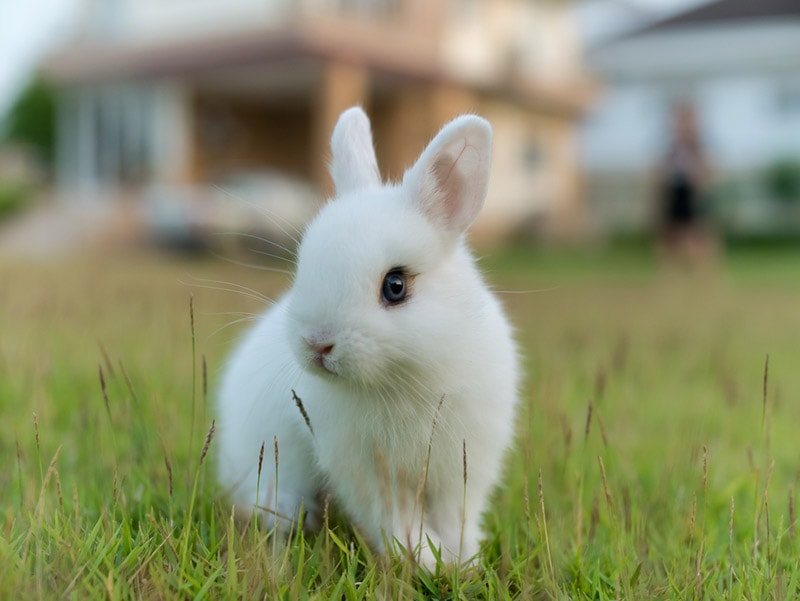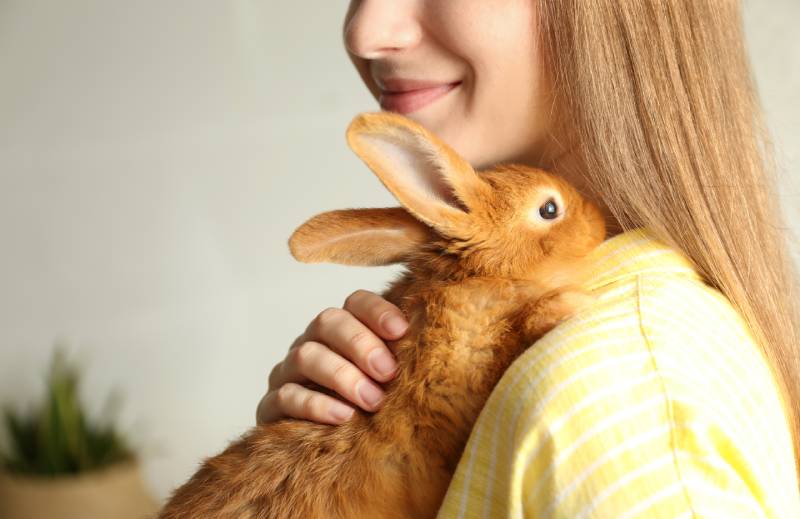Is There a Difference Between a Bunny and a Rabbit? Facts & FAQ
By Ed Malaker
Updated on
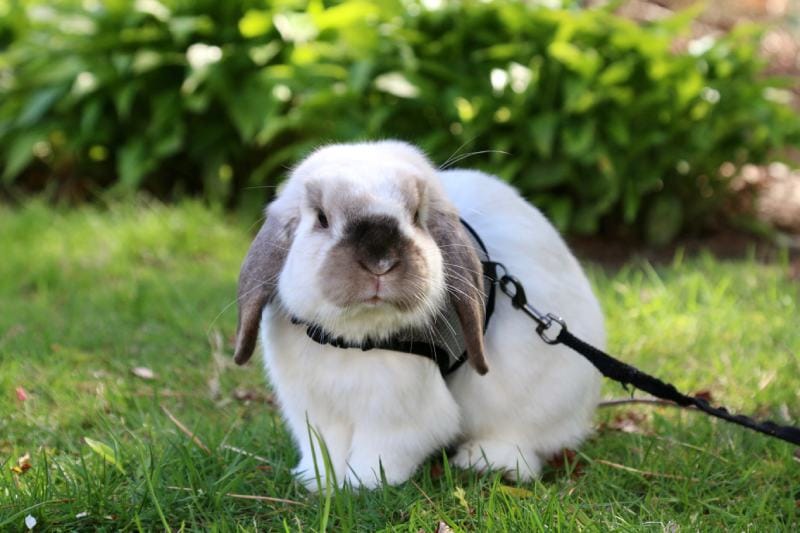
Click to Skip Ahead
Many people use the terms “bunny” and “rabbit” interchangeably, which might cause you to wonder if there is a difference between the two. The short answer is no. The word “bunny” is usually just an affectionate way to refer to a rabbit, but keep reading as we explore other reasons that people use the two terms and discuss other interesting facts about rabbits.
Bunny: A Term of Endearment
“Bunny” is commonly used as an endearing or affectionate way to refer to a rabbit. It often connotes a sense of playfulness and youthfulness. People usually imagine a small, cute, and cuddly creature when they use the word bunny, and it has become a popular term for referring to rabbits in children’s literature, cartoons, and various forms of media. Many people also like to call a baby rabbit a bunny. In this context, a bunny is more of a pet name or a nickname for a rabbit rather than a scientific classification.
Rabbit: The General Term
“Rabbit” is a broad and general term encompassing rabbits of all ages and sizes. It is the standard term used to describe the European Rabbit, which is responsible for all 305 domestic breeds. Researchers, biologists, and experts primarily use the term rabbit in scientific and zoological contexts, and it is the appropriate term to use when discussing rabbits’ biology, behavior, or habitat.
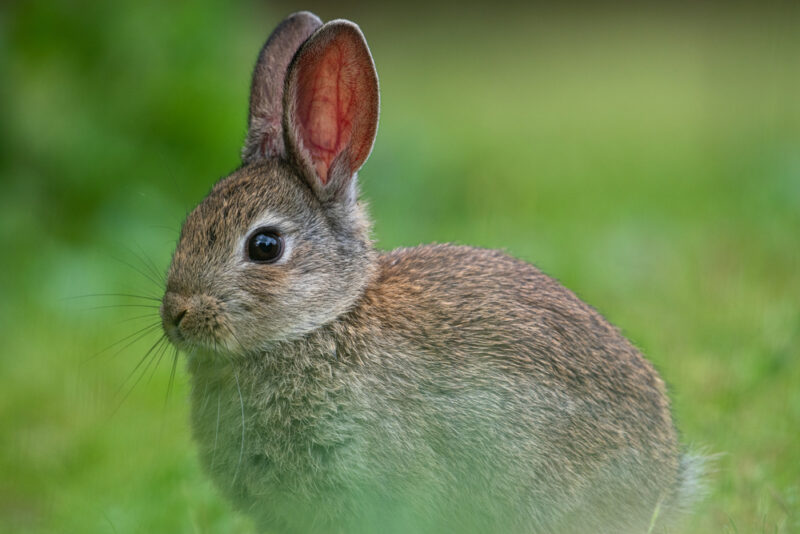
Size and Age Considerations
While there is no biological difference between a bunny and a rabbit, bunnies are often associated with small or young rabbits. In their early life stages, rabbits are small, adorable, and highly energetic. However, as they age and reach their adult size, people are more likely to call them rabbits instead of bunnies.
Cultural and Linguistic Variations
The terms bunny and rabbit can vary across different cultures and regions. The two terms are used interchangeably in some languages, including English. However, in certain contexts, a bunny might refer to a specific breed or variety of domesticated rabbits. Additionally, someone might use the term bunny more broadly to refer to other rabbit-like animals, such as hares. It is important to consider cultural and linguistic nuances when interpreting the meaning of these terms in different contexts.
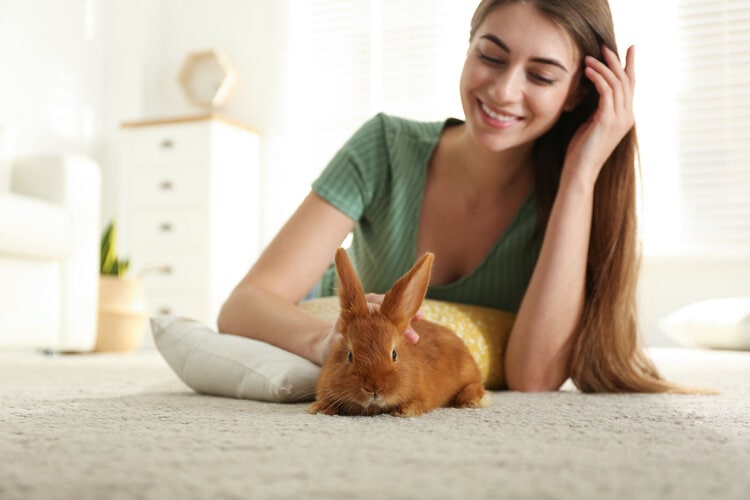
Where Does the Word Bunny Come From?
While it’s hard to determine the exact origin or reason that people use the word bunny to refer to a rabbit, it might have to do with the word “bun,” a historical pet name for a rabbit. The term can also describe a beautiful woman or child. In the Scottish language, it means “tail of the hare.”
Why Do Children Like to Call a Rabbit a Bunny?
The reason that many children prefer to call a rabbit a bunny is hard to determine, but one theory is that many learn the word bunny first. It may have something to do with the y-ending that it shares with other children’s names for animals, like kitty, doggy, birdy, puppy, and fishy.

What Is a Hare?
A hare is a mammal species that belongs to the same family as the rabbit and looks similar but is a distinct animal. That said, you might hear people using the terms rabbit and hare interchangeably as they do with rabbit and bunny. Hares have longer, more powerful legs and feet than rabbits, and they tend to be larger with longer ears. Their body is taller, leaner, and more streamlined, and they like to live in open areas, relying on their speed to escape predators.
Summary
The terms rabbit and bunny are interchangeable and refer to the same animal. Many people use the word bunny to refer to baby rabbits and those that are especially cute. Many children use it to refer to rabbits of any age or appearance, and they might even use it to refer to a hare or other, similar animal. The origin of the term bunny is hard to trace but likely stems from the word bun, a popular pet name for rabbits, meaning beautiful woman or child. While both terms refer to the same animal, professionals prefer to use the word rabbit when discussing their behavior, habitat, and other traits.
Featured Image Credit: Katy-Miele, Shutterstock


